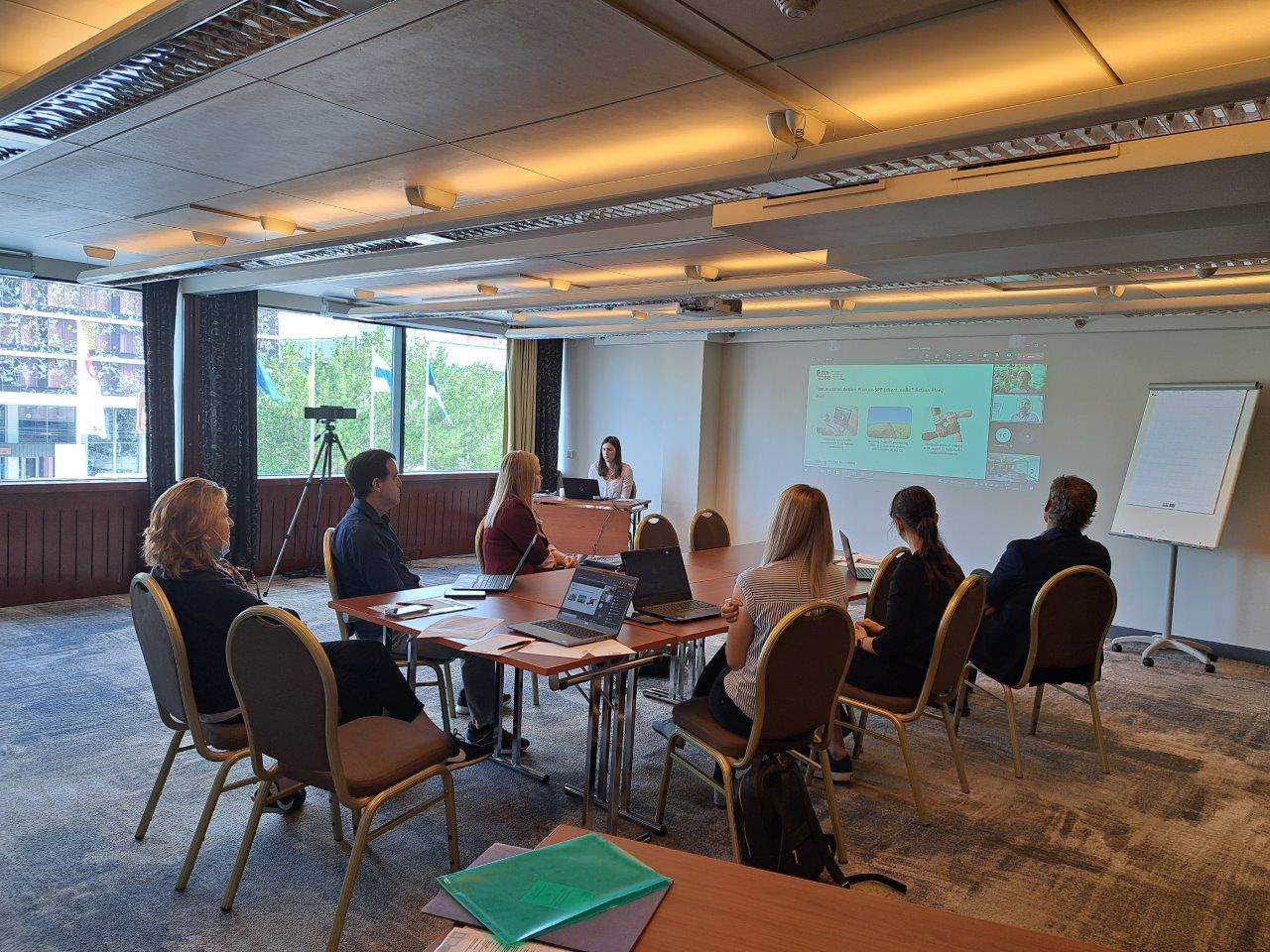
ENHANCE additional activities 2nd Thematic Workshop
EMAS as a tool to enhance resilience against crisis
Organizations, large and Small and Medium-sized enterprises (SMEs) are increasingly aware of the benefits of closing loops by improving resource efficiency: saving material costs, creating competitive advantages and new markets are among the main reasons for organisations to take action.
At this respect, the Eco-Management and Audit Scheme (EMAS) is considered as a driver of the Circular Economy by encouraging organisations to develop techniques which make better use of resources in the production phase and retain physical goods longer and more efficiently in productive use, thus increasing their competitiveness. Starting from these considerations, ENHANCE project overall objective is to improve the implementation of regional policy instruments oriented to increasing the efficiency of resources by the exchange of experiences and practices on supporting EMAS registration.
Main barriers perceived by EMAS adopters are: lack of EMAS recognition from the market and Public Authorities (PA), technical support from PA and external incentives; high cost, etc. In this regard, the role of PA supporting EMAS as a competent body becomes essential in order to remove these barriers and to encourage organizations to adopt EMAS through various means, such as reducing the technical barriers for EMAS adoption, enhancing benefits derived from EMAS, public subsidies and rewarding EMAS implementers with reduced enforcement (e.g., regulatory relief). Derived from the activities to be carried, such expected changes shall become effective upon the production of these main outputs:
1)Regional Studies on supporting EMAS registration.
2)Methodology to assess the feasibility of good practices on supporting EMAS registration.
3)EMAS Joint Database.
4)Thematic workshops to exchange experiences.
5)Regional Studies on the exchange process.
6)Toward EMAS Action Plans.
Main beneficiaries from the cooperation will be PA, but direct effects resulting from the project will also affect organizations as EMAS adopters.
€1,238,416.00
Environment and resource efficiency
This policy instrument is supported by two strategies approved by the Catalan Government in 2015: Strategy for the promotion of green and circular economy and Catalan Strategy for Ecodesign.This instrument is linked to the need of improving the competitiveness of organizations, particularly SMEs, but taking into account a specific aspect of innovation: adding environmental added value to processes, products and services. This is essential in the competitiveness of SME.
The development of businesses must consider the environmental performance of the organization through a systematic approach, preferably, through the adoption of recognised voluntary schemes at EU level such as EMAS, a voluntary scheme that offers the opportunity of rethinking operations, activities, products and services within the whole business cycle.
This instrument is related to the Priority axis selected for ENHANCE with regard to supporting the capacity of SME to achieve regional, national and international markets and the innovation processes of the Catalan OP.
In order to guarantee sustained results, the approach of this instrument needs to be improved in relation to:
- Incentive organizations from all sectors to adopt good environmental practices and eco-innovation within a systematic approach and not a one-in-time action.
- Enhance the collaboration among different Public Authorities (PA) and other interested parties to guarantee the effective implementation of voluntary instruments among the SME.
The Andalusian OP contributes to the strategic priorities of the European Regional Policy for the economic development and the Cohesion Policy, whose reference framework is determined by the Europe 2020 Strategy for smart, sustainable and inclusive growth.
The option for smart growth, aimed at contributing to an economy based on knowledge and innovation is directly related to TO3 of the Andalusian OP, “Enhancing the competitiveness of SMEs”, and more specifically to the to the Investment Priority 3d, Specific Objective 3.4.1, “Promoting SMEs growth and consolidation, in particular, by improving their finance, technology and access to advanced support services”.
To achieve the objectives set on these environmental priorities in Andalusia, a collaboration and association between SMEs and the Administration is necessary.At this respect, TO3 foresees the improvement, promotion and development of voluntary instruments (EMAS among others) in SMEs as a key element for improving their environmental performance, for the sustainability of the production system and for generating green jobs.
In order to guarantee sustained results and a more efficient implementation of structural funds, this policy instrument needs to be improved in order to encourage organizations to adopt systematically good environmental practices, as well as to foster collaboration among public authorities and other stakeholders to guarantee a successful implementation of EMAS and other voluntary schemes by SMEs.
Europe's public authorities are major consumers. Although Green Public Procurement (GPP) is a voluntary instrument, it has a key role to play in the EU's efforts to become a more resource-efficient economy.
The objective of the policy instrument selected is to spread the application of GPP among public bodies of Liguria through the introduction of environmental criteria in the services and products purchasing procedures. In the article 20 the policy instrument requires the adoption of a three-year Action Plan in all public institutions of the region. The article 21 gives indication of environmental criteria to consider in the green purchasing procedures and it mentions EMAS explicitly as one of the main tool to apply GPP.
To date in Liguria about 49 different three-yearly Action Plan have been adopted by public authorities of Liguria Region.
In the year 2012 the Liguria Region has approved a deliberation that has furtherly detailed the products and services categories to consider in the GPP procedures and the criteria that can be used, confirming the relevance and strict connection of EMAS with this policy instrument.
The instrument has several improvement opportunities, e.g.:
- Increase the number of green purchasing procedures in the public institutions.
- Make aware firms of the importance of EMAS to obtain public contracts.
- Increase the knowledge of public officers of the best modalities to use EMAS in GPP following the national and international rules in the field.
Estonian economy is the one of the most resource and energy intensive one in the EU. The enterprises have been reluctant to increase the resource efficiency for quite some time.
Both ‘Europe 2020’ and ‘Estonia 2020’ have the objective of ensuring sustainable and low-carbon economic growth and the R&D and innovation strategy identifies resource efficiency as one of the main growth areas. To ensure this, it is necessary to continue to decouple growth from increasing resource use. The goal of this investment priority is to increase the competitiveness of enterprises both applying and offering resource efficient technologies, stimulating eco-innovation and contribute to economic growth in the longer term and reduce the pollution load from production on the environment and human health. Introducing new resource efficient technologies and other improvements, such as Environmental Management Systems, e.g. EMAS, will increase the competitiviness of enterprises.
To improve the policy instrument 5, SEI Tallin will help MoE to improve the funding scheme under OP to become more efficient and goal-oriented. For this SEI Tallin will assist MoE to further develop and improve the policy measure to support resource effici and EMAS scheme as well as to develop and improve the evaluation criteria of the funding scheme (e.g selection of projects, evaluation of results, etc.).
As a result the funding scheme will be improved in terms of the improved guidelines for application for funding, new or improved indicators for evaluating the performance of the funding scheme (OP), etc.
The main project object is to create a new National EMAS program fully based on international experience exchange and refering to the best practices.
Main objective of this policy instrument is an update and revision of main objects including redefinition of main issues, roles and financial support programs. It leads to the better implementation of EMAS in CZ respecting national and regional and increases its potential relations to the national sustainable development strategy ČR 2030 and other strategic documents.
In this Policy Instrument, there isn't sufficiently defined potential benefits and possibilities, which EMAS offers. Government needs to be more supportive and promote EMAS as one of the well-established voluntarily instruments.
The update will bring several benefits:
- Wider implementation of Environmental Management Systems (EMS) according to EMAS scheme.
- Clear and consistent approach on national level respecting EU rules and procedures in organizations responsible for EMAS development.
- Facilitate the implementation of EMAS individual organizations (better regulation) and the removal of obstacles (administrative costs and burdens), which are known from the practice of EMAS-registered organizations.
- Financial tools to support potential registrations.
- Higher awareness of the importance of EMAS to obtain public contracts due to the better knowledge of public bodies (national, regional, local) of the best way to use EMAS in GPP following national and EU rules.
The Austrian OP contributes to the strategic priorities of the European Regional Policy for the economic development and the Cohesion Policy, whose reference framework is determined by the Europe 2020 Strategy for smart, sustainable and inclusive growth. Smart growth is related to the Specific Objective ”Enhancing the competitiveness of SMEs as a basis for growth of companies”. Target groups are SMEs in the production, tourism and service sector. Special attention is given to projects of companies which provide products and services making a contribution to energy efficiency and climate change reduction. According to an EC study, EMAS has a positive influence on competitiveness and stimulates organisational and process innovations. As per section 11 of the OP all public subsidies and grants in Austria should take into account aspects of sustainable development. Currently, all applicants receive a questionnaire to fill out. It is intended to create more awareness for the topic of "Sustainable Development". In the questionnaire information about the existence of EMAS and other voluntary instruments is retrieved. EMAS is also integrated into the selection criteria for all subsidies and is also widely available as a criterion, i.e. an EMAS implementation achieves extra points in the project evaluation. To achieve the specific objective of enhancing the competitiveness of SMEs, subsidies should encourage SMEs more to adopt systematically good environmental practices, like EMAS.

EMAS as a tool to enhance resilience against crisis
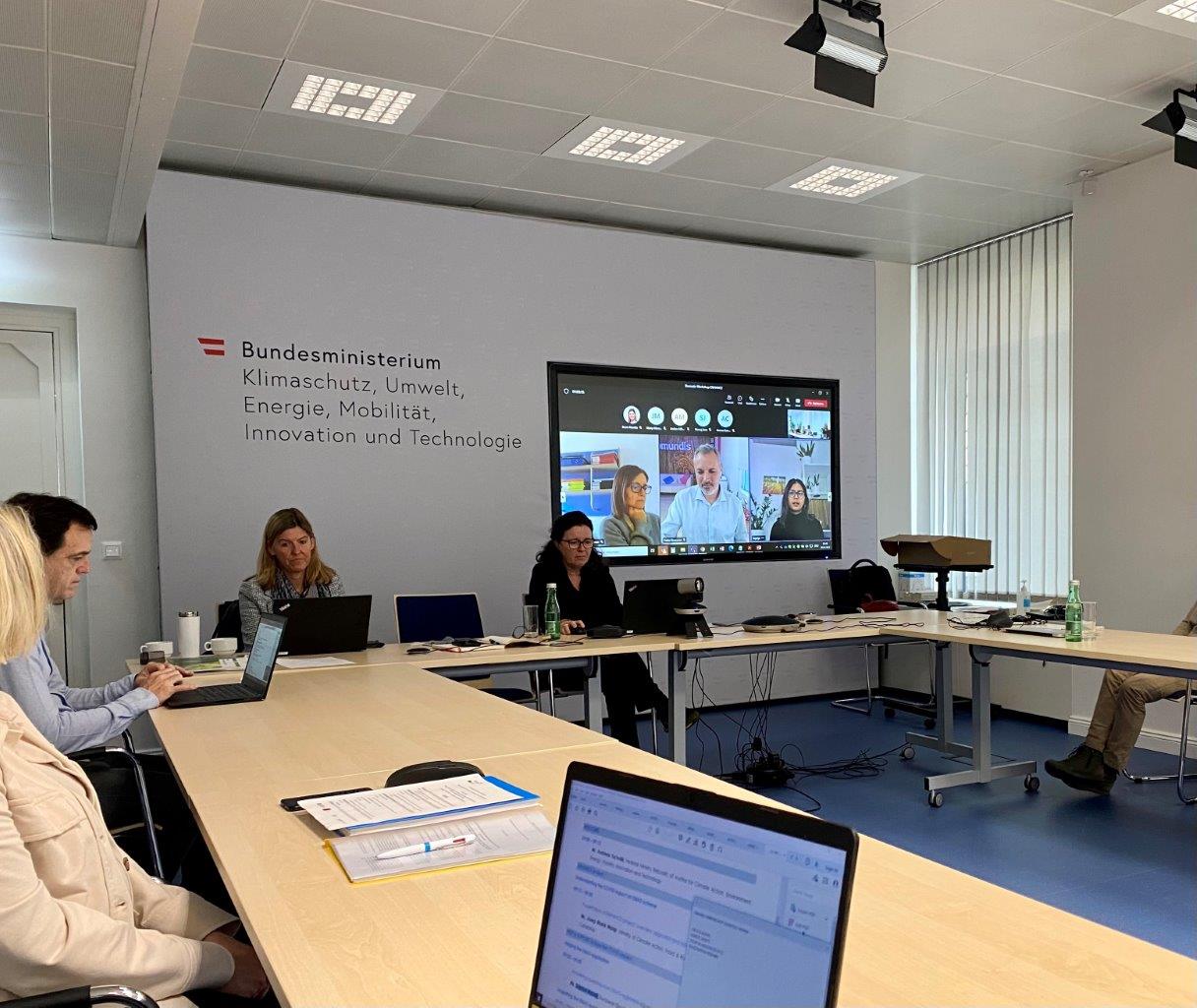
How EMAS actors have reacted to face the COVID impact

Interview with Kathrin Renz, provisional head of Directorate General I (BMK)
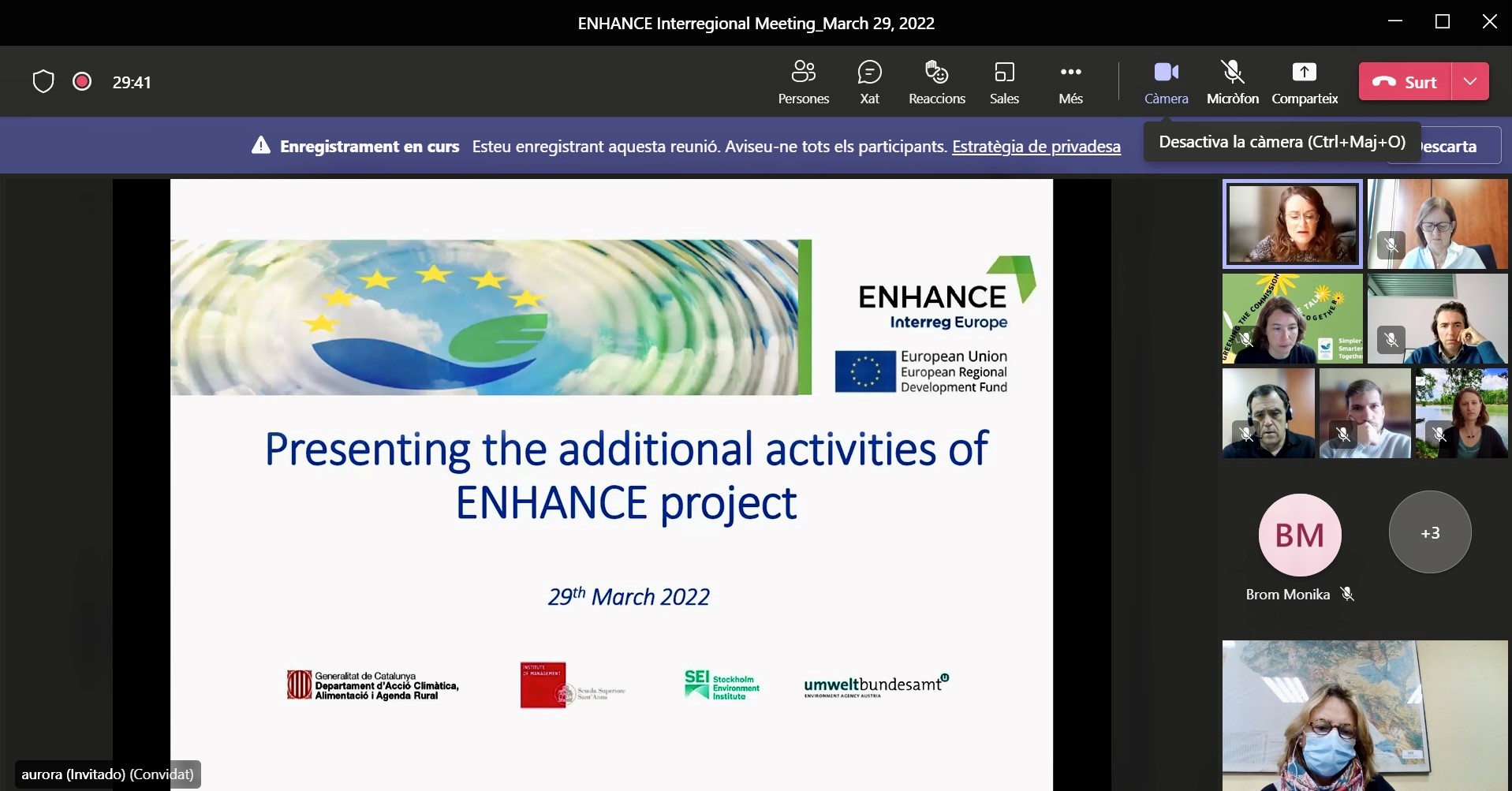
REACTING to face and recover from the COVID crisis
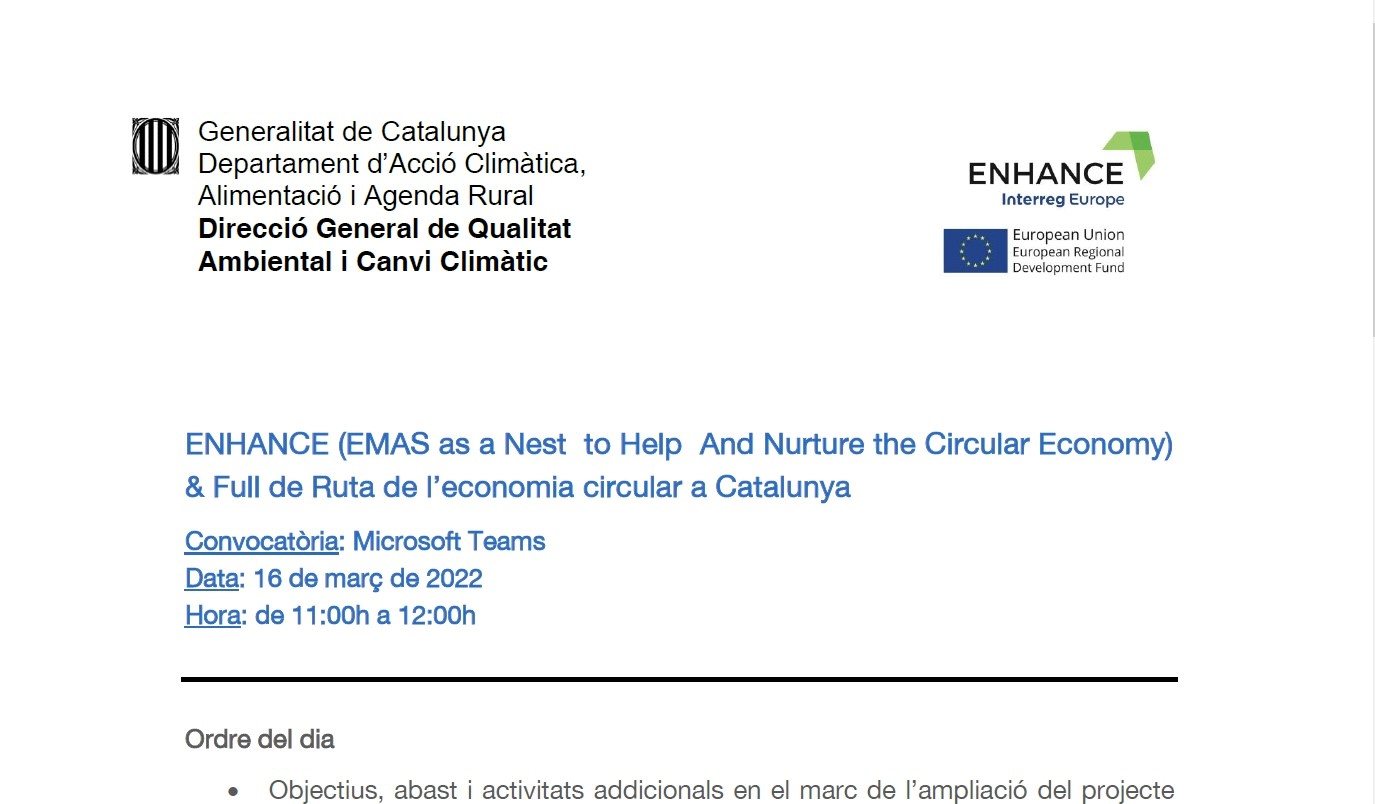
Interview with the Responsible for Roadmap on Circular Economy in Catalonia in the framework of the additional activities of ENHANCE project
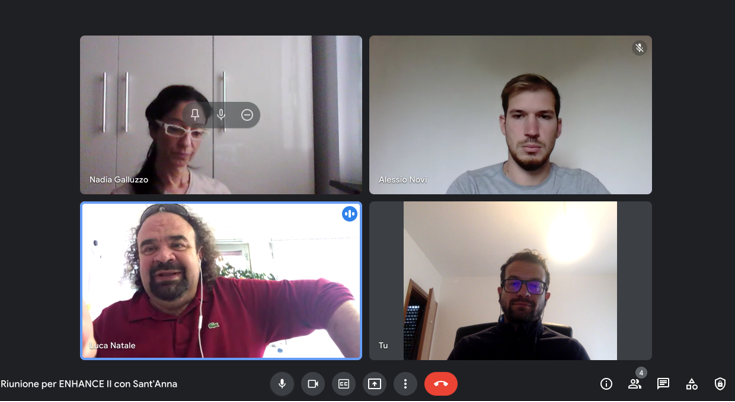
Interview with the officers of the new Green Public Procurement (GPP) three-years plan of the Liguria Region (Italy)

ENHANCE and the COVID impacts on implementation of EMAS
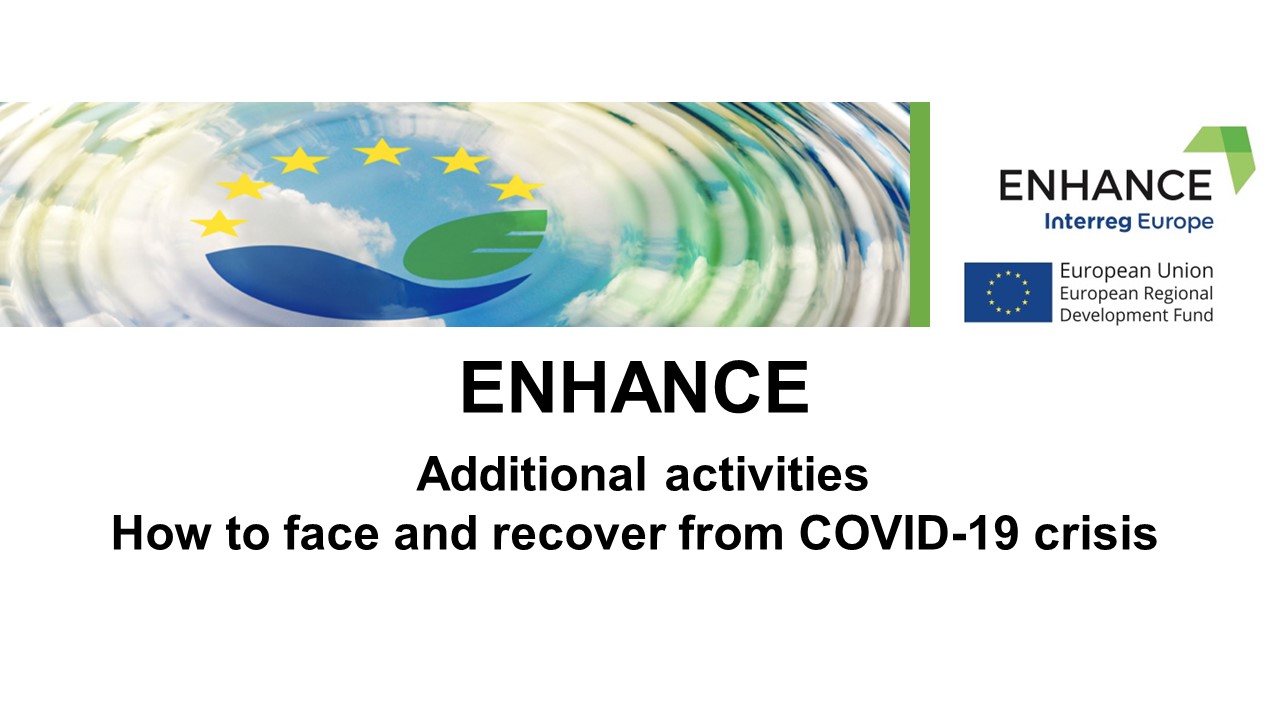
ENHANCE project additional activities. How to face and recover from COVID-19 cris
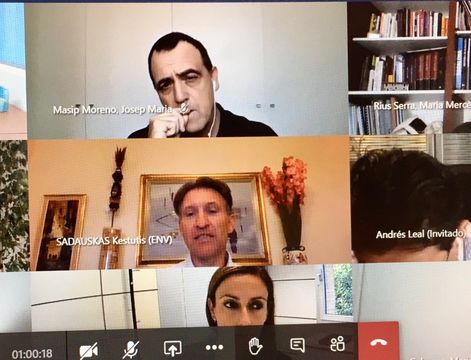
Interreg Europe ENHANCE High-level Dissemination Event, Plenary Session
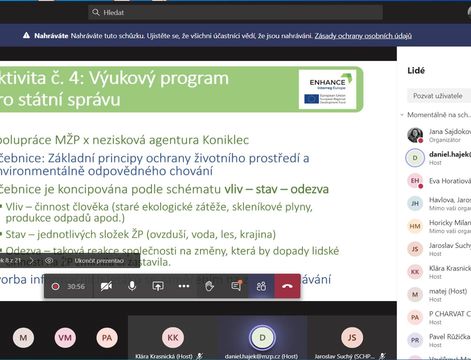
ENHANCE High-level Dissemination Event - Country Session CENIA - Czech Environmental Information Agency, 15th September 2020